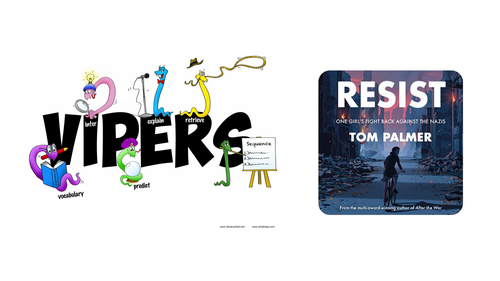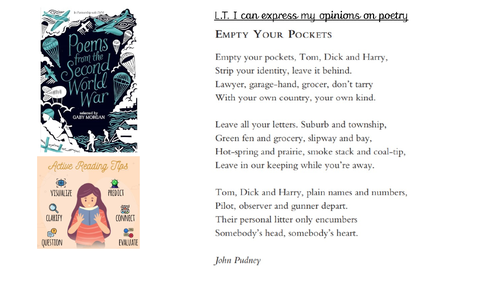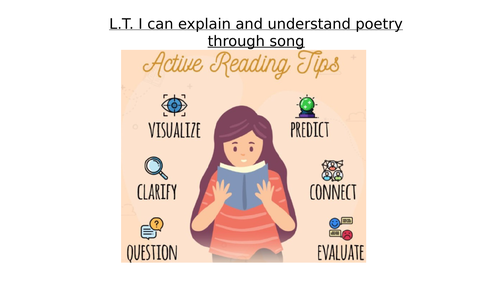
10Uploads
1k+Views
2k+Downloads
History

WW2 Guided Reading: Tom Palmer Resist (UKS2)
8 lessons which cover key VIPERS reading skills based on Tom Palmer’s excellent WW 2 text RESIST.
Lesson breakdown as follows:
Vocabulary
Infer
Sequence/summarise
Predict/infer
Retrieve/summarise
Explain
Explain/summarise
Infer (character emotions)

WW2 Poetry 'Empty Your Pockets' UKS2
This resource can be taken over 1-4 lessons depending on your class ability.
The poem has been selected from the text ‘Poems from the Second World War’ by Gaby Morgan.
The lesson focus uses ‘Empty your Pockets’ by John Pudney.
The suggested breakdown of the learning is as follows:
Read poem and uses active reading strategies to visualise, predict, clairfy, connect and evaluate by annotating and illustrating key lines, phrases or words.
Discuss how the poem makes readers feel using evidence.
Discuss the poems structure and how this contributes to the impact.
Discuss the impact of language used (help sheet provided with visuals).

UKS2 Poetry- Where the Poppies Now Grow (WW2)
This resource uses Where the Poppies Now Grow by Hilary Robinson.
L.T. I can explain and understand poetry
In the first session, pupils annotate the poem using active reading strategies.
In the second session, pupils explore some of the active reading strategies in more detail.
In the third session, pupils will evaluate the themes that this text covers and provide evidence for any appropriate themes.
Suitable for UKS2 reading lessons.

Poetry through song KS2
This unit of 3-4 lessons uses Munford & Sons’ song ‘Dustbowl Dance’ as inspiration for poetry learning through song.
Lesson breakdown:
1a. Annotate song using active reading strategies and discuss the meaning
1b. Listen to the song and discuss how the music and lyrics combine for meaning
Answer questions to deepen understanding of the poem (including questioning, visualising, inferring, discussing structure).
Analyse meaning and evaluate




